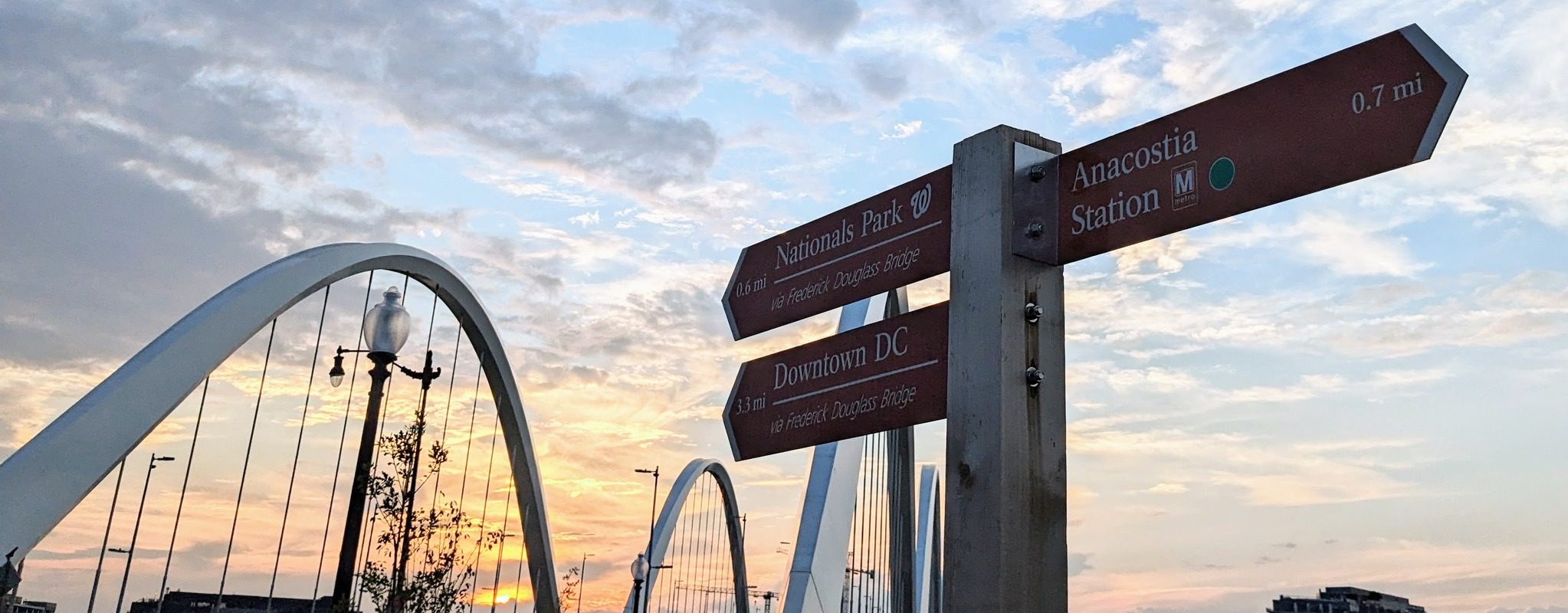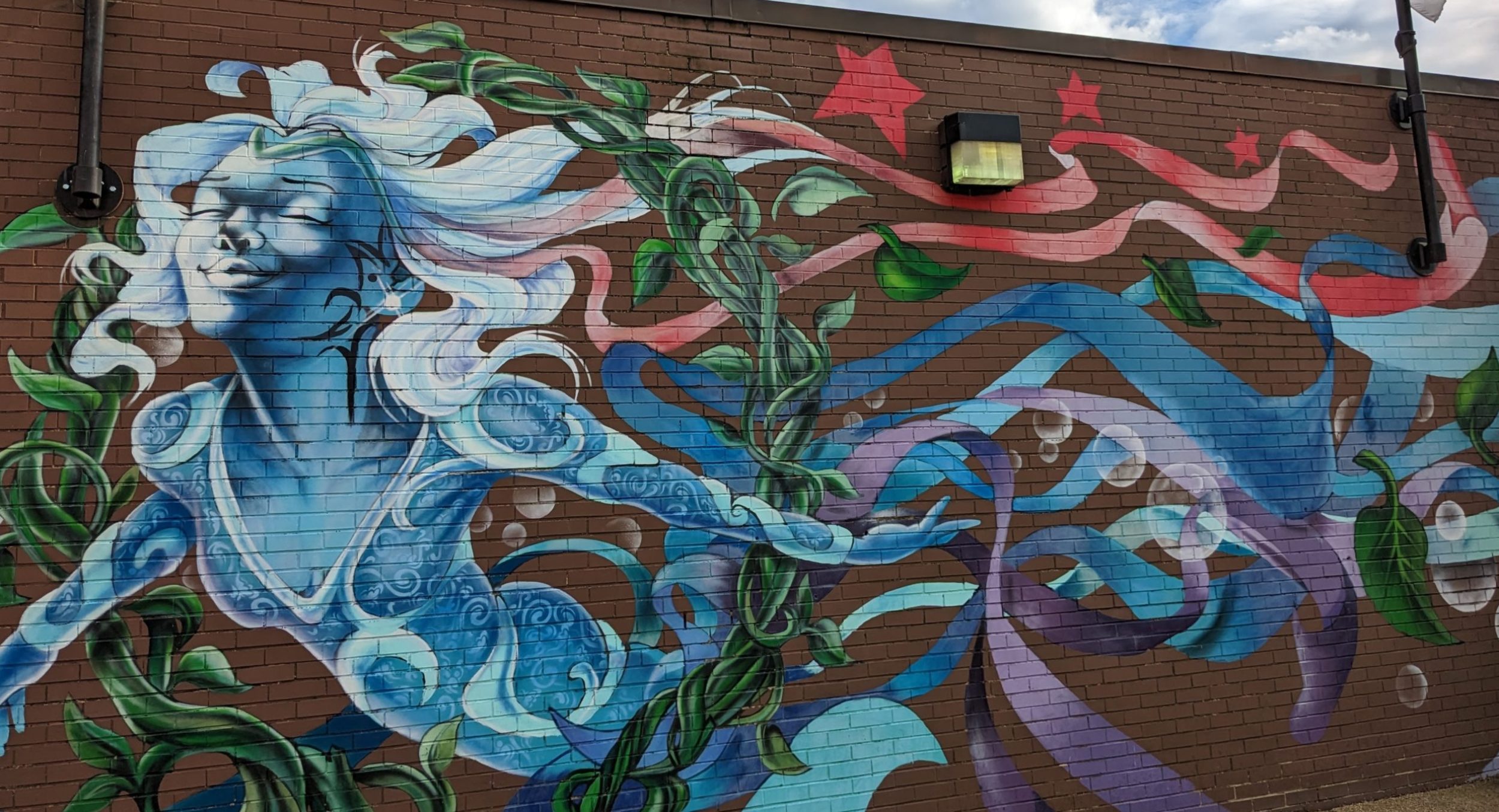 Try to imagine who recently picked up a spray can of paint and wrote this line from a 30-year-old Pink Floyd song
Try to imagine who recently picked up a spray can of paint and wrote this line from a 30-year-old Pink Floyd song
Our writer made his mark in a comfortable neighborhood in Bogotá. This wall is around the corner from a gym that occupies several floors of a building. Although the gym is dedicated largely to spinning classes, my husband and I saw folks doing what looked like capoiera moves in a big studio as we passed by on a stroll.
David and I spent a little more than two days in Bogotá. We didn’t hit the nightclubs or the most expensive restaurants, so we didn’t seen the very richest folks. And, we stuck with places that seemed safe for us to wander alone, so we didn’t see the poorest people. Instead, we walked through places where people have enough money for things like gyms, nice apartments and English lessons for their children. Colombia isn’t like Mexico or Puerto Rico. English is not commonly spoken here. So, we can guess our graffiti writer had taken some lessons, at least in part because of the odd grammar seen here. He seems to have known enough to know that there is a colon is used in English, even if most of us would write that sentence with a comma. “Mother, should I trust the government?”
We can guess that our graffiti writer was young and male … because, after all, he was spraypainting a Pink Floyd lyric on a wall. What’s very encouraging about this graffiti is that the writer is raising questions about his government.
Graffiti is not be the best way to do that, but it’s not a bad alternative, given what Colombia’s been through in the last half century or so.
Ministry of Justice Destroyed

Few people outside of Colombia have heard of the M-19. It’s overshadowed by the larger FARC (Revolutionary Armed Forces of Colombia, or Fuerzas Armadas Revolucionarias de Colombia.) The M-19 eventually gave up its arms, its members received pardons and the guerrilla group became a political party in the 1980s. It even returned a precious item, a sword of the 19th century Latin American revolutionary Simon Bolívar, which it had stolen in the 1970s.Colombia’s still fighting FARC, as it has been doing since the early 1960s. It’s also had to deal with another leftist guerilla group, National Liberation Army (ELN), and the rightist paramiliatary United Self-Defense Forces of Colombia (AUC), along with drug traffickers, and sometimes combinations of guerrillas and drug traffickers. That’s made Colombia something of a mess. It has one of the world’s largest populations of people who are almost like refugees within their own nation’s borders. The United Nations puts the number of internally displaced people at about 3 million, in a nation of about 44 million. That tops the estimated 2.6 million internally displaced people in Iraq and more than 2 million in Sudan’s Darfur region.
Colombia’s made great strides in recent years against its guerrilla groups, on the right and left, especially under President Alvaro Uribe. Members of these groups have been persuaded to give up their arms, and the rate of violent crime has fallen. Uribe has said that 48,000 people have left these groups, and that the annual numbers of kidnappings and murders have plunged. Colombia’s reputation has turned around. Cruise ships dock in Cartagena and their passengers freely wander the streets of the old colonial section of the city. Independent travelers like David and me can make their ways through the major cities of Colombia without incident.
Uribe also has been credited with trying to improve the Colombian economy. Business Week in 2007 ran a cover story with the title, “Extreme Investing: Inside Colombia. An improbable journey from crime capital to investment hot spot. Can this boom last?” In the story, Uribe is said to have made confidence (confianza) “his overarching goal.” The benchmark Colombian IGBC stock index stood at about 10011 when the article ran. Although hammered with the rest of the world’s equities in more recent years, the index recovered more so than most. It show a gain of about 14 percent since May 2007. The Standard & Poor’s 500 Index lost more than 25 percent of it value in the same period. (UPDATE: As of Oct. 13, the S&P has risen about 2 percent in the past 12 months, while the IGBC has fallen 14 percent.)
Uribe has been pushing for changes to the Colombian constitution to allow him to run for a third term in the nation’s 2010 presidential election. One hopes he will listen to critics of this idea, including former Mexican president Vicente Fox, and stand down. Colombia’s in the midst of a balancing act. It still needs massive security forces to quell violence and thus needs all the more so to allow dissent and change within the government.
There are lots of students in the Candelaria section of Bogotá, and thus more than enough images of Che Guevara to rile my husband, a former chairman of the Iowa State college Republicans. The one shown to the right also turns an anti-cocaine slogan into an anti-imperialist one (don’t take, or use, the Coke that kills).
Many of the churches we passed in the student district had graffiti on them, much of it about Colombia’s relationship with the United States. People were alarmed when news broke earlier this year that Colombia would grant the United States access to seven military bases for joint operations against drug-trafficking and guerrillas. The Economist has said this new accord really only largely “updates a 1952 military-assistance agreement of a kind that the United States has with some 120 countries around the world, including many in Latin America.” The United States also would spend $46 million extending the runway and aprons and building a hangar at Palanquero, the main Colombian air force base.
Still, there are questions about this agreement in Colombia, or at least in the Candelaria. The graffiti shown below appeared on churches there:
Similar sentiments were expressed on secular buildings, as shown below.
Colombia still needs the yanquis and their military aid, and may need them for some while to come. Yet, it’s great to see some Colombians questioning that relationship. Because even in the best of circumstances, even with an effective president, and really in any country anywhere and anytime, the answer to the question posed in the Pink Floyd lyric cited at the beginning of this blog is a clear and resounding no.
UPDATE, FEB. 27,2010: Colombia’s court told Uribe `no’ and he seems ready to abide by that decision. Reuters quoted Uribe said he would”accept and ..respect the decision of the Constitutional Court.”
To learn more about Uribe’s Bid for a Third Term:
Fox Tells Uribe Not to Run Again






